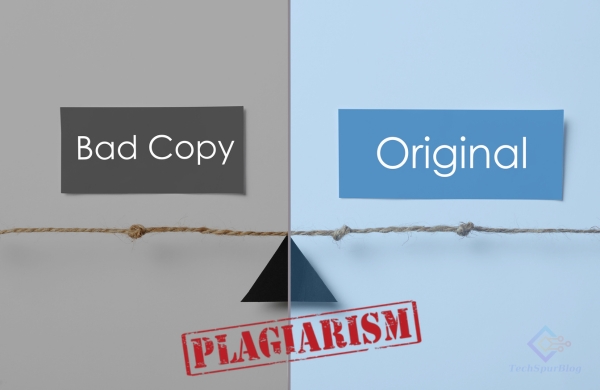
Plagiarism stands as one of the most perilous challenges in the academic landscape, especially in college. The repercussions for plagiarizing academic work can be severe, potentially resulting in failed assignments, expulsion from classes, or even dismissal from college. While the consequences might vary, the importance of combating plagiarism remains non-negotiable.
Thankfully, technology offers a solution: Plagiarism checker AI Tools. These tools are designed to detect and highlight any instances of copied content, enabling students to rectify and ensure the originality of their work before submission. Here’s an exploration of some prominent plagiarism checkers that can be a saving grace for students:
Understanding Plagiarism Detection Technology
Before we dive into the specific tools, it’s crucial to understand how plagiarism detection technology works. These tools utilize advanced artificial intelligence (AI) and machine learning algorithms to compare submitted text against vast databases of academic papers, published works, and web content.
By analyzing sentence structures, word choices, and content patterns, these AI-powered tools can identify potential instances of plagiarism or unoriginal work.
Also Read: Top AI Content Detector tools for Ensuring Authenticity and Originality
Top Plagiarism Checker AI Tools
Grammarly
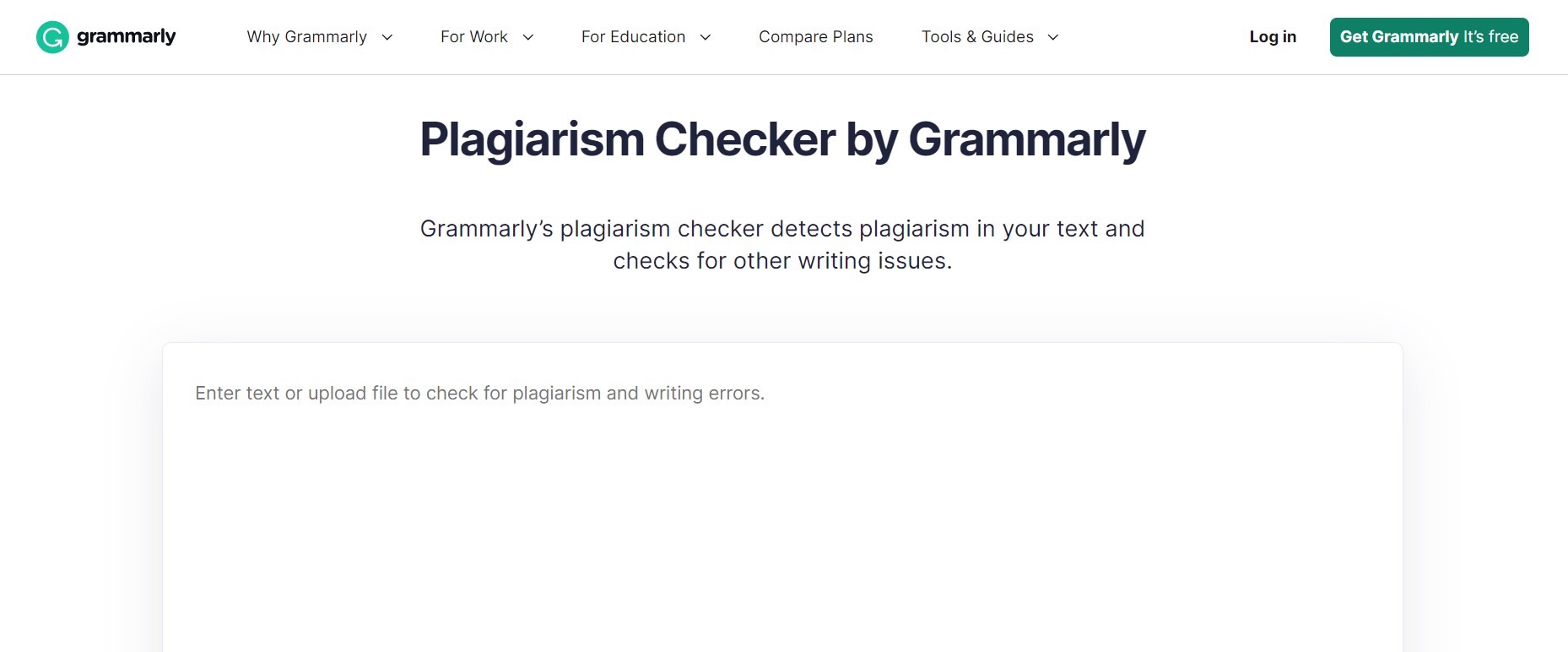
Grammarly, renowned as a comprehensive writing app, offers a plagiarism checker among its array of advanced features. It swiftly examines documents for replicated content, providing a detailed Plagiarism Report pinpointing areas that need revision. Its free version grants access to essential features, including the plagiarism detector, while the Premium plan unlocks more advanced writing tools.
Expertise: Known primarily as a writing assistant, Grammarly has expanded its services to include robust plagiarism checking.
Key Features:
– User-friendly interface
– Comprehensive writing feedback
– Plagiarism detection integrated with grammar and style checking
Use Case: Ideal for writers and professionals who want to ensure their work is both original and well-written.
Turnitin

Widely favored by professors, Turnitin is a staple in universities for detecting citation errors and improper copying. Integrated into online classroom assignments, it provides a plagiarism score and offers a chance to revise papers before final submission. While a score below 15% is generally considered safe, aiming for under 10% is recommended.
Expertise: Widely recognized in academia, Turnitin has established itself as a leader in plagiarism detection.
Key Features:
– Extensive database of academic papers and web content
– Integration with learning management systems
– Detailed similarity reports
Use Case: Particularly valuable for educational institutions, Turnitin helps maintain academic integrity by thoroughly checking student submissions against a vast repository of academic works.
Unicheck
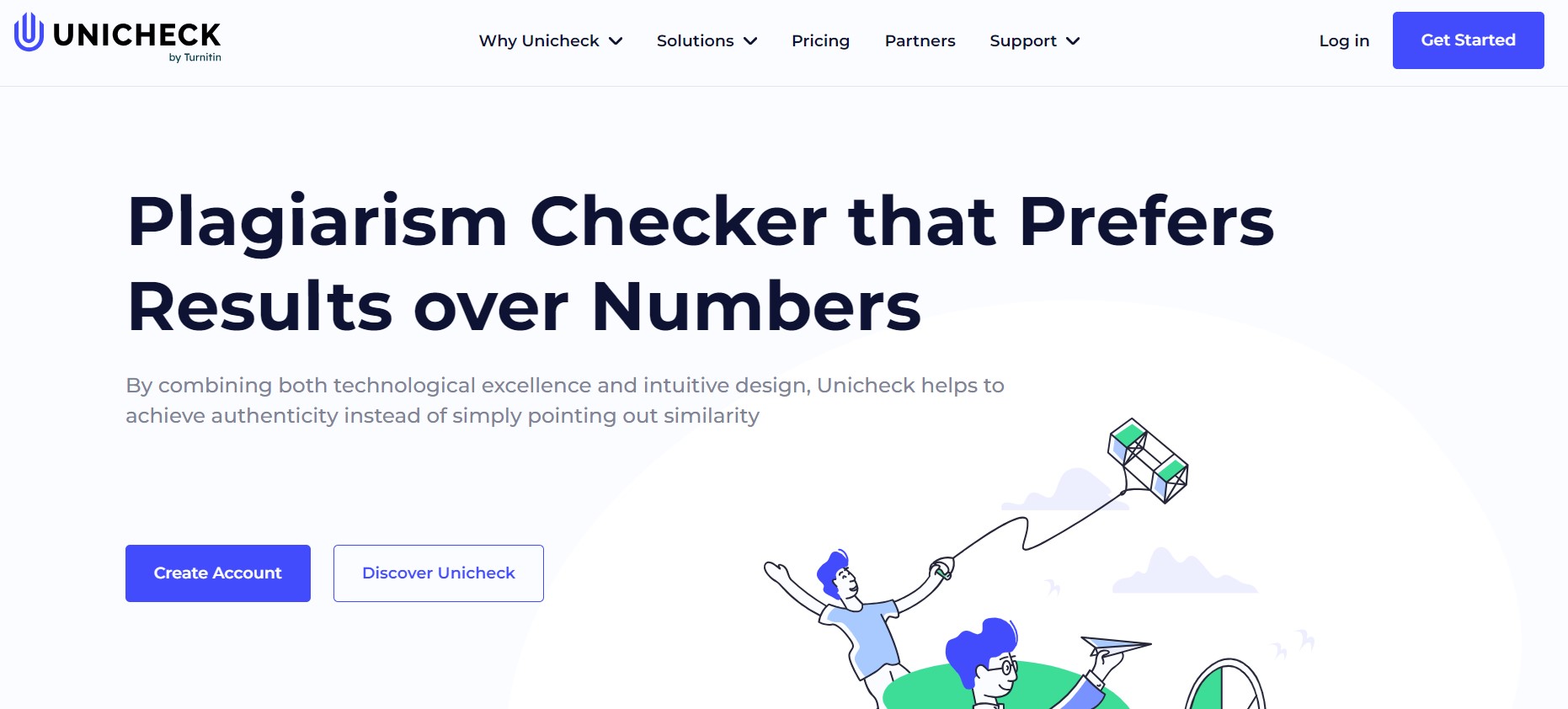
Utilized by over 550 institutions globally, Unicheck swiftly examines papers for plagiarism, highlighting duplicated sections without altering the document’s formatting. Although it requires payment based on the number of pages, its efficiency in maintaining formatting integrity makes it a popular choice.
Expertise: Specializes in real-time plagiarism detection with learning management system integration.
Key Features:
– Real-time checking
– Integration with popular learning management systems
– Customizable reports
Use Case: Ideal for educational institutions looking for seamless integration with their existing digital learning environments.
Plagramme
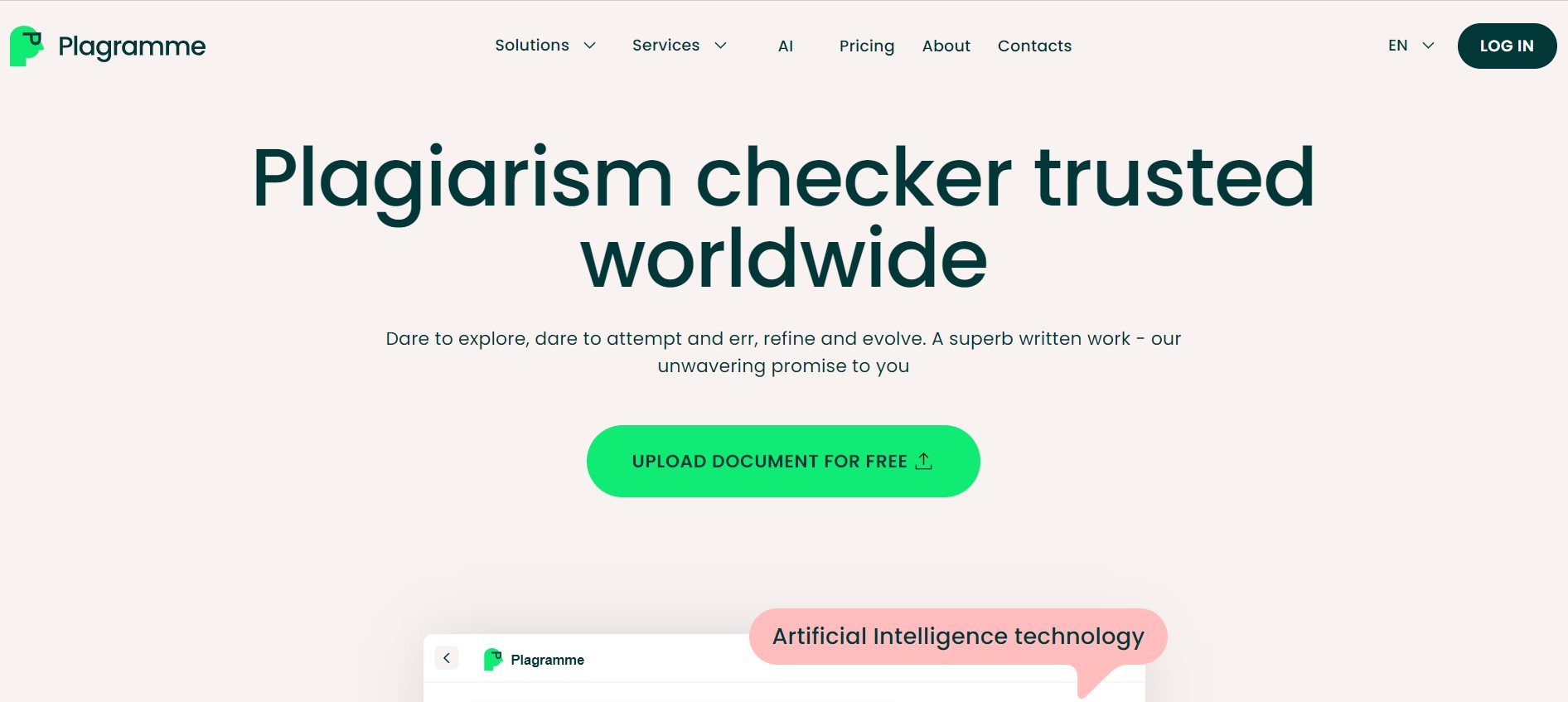
Similar to Unicheck, Plagramme flags plagiarized content in papers, aiding in immediate rectification. It also corrects citation errors, facilitating the creation of original content. While it requires payment, its services are comparatively more affordable, and students can access a limited free account.
Expertise: Specializes in flagging plagiarized content and correcting citation errors.
Key Features:
- Real-time plagiarism detection
- Citation error correction
- Affordable pricing structure
- Limited free account for students
Use Case: Ideal for students and academics looking for an affordable tool that not only detects plagiarism but also helps improve citation accuracy.
Also Read: Humanize AI: Bridging the Gap between Artificial Intelligence and Humanity
Plag Tracker
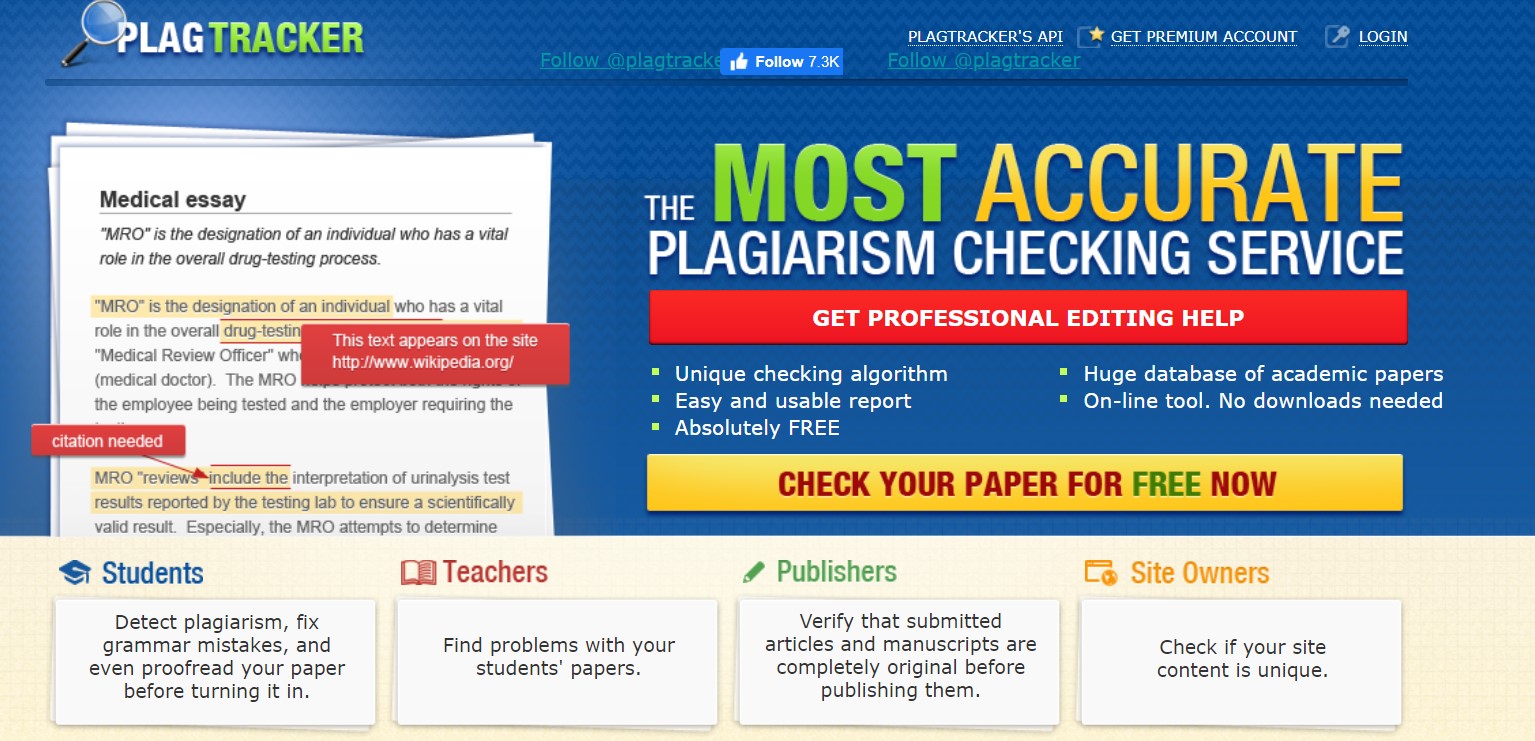
A user-friendly online website, Plag Tracker employs a sophisticated algorithm to compare papers against an extensive academic database. Its report provides links to sources and connections to any plagiarized material. While a premium version is available for larger file checks, the basic plagiarism checker remains free to use.
Expertise: User-friendly online plagiarism checker with a sophisticated algorithm.
Key Features:
- Extensive academic database for comparison
- Detailed reports with links to sources
- Free basic plagiarism checker
- Premium version for larger file checks
Use Case: Suitable for students and researchers who need a reliable, free tool for basic checks, with the option to upgrade for more comprehensive analysis.
Copyscape
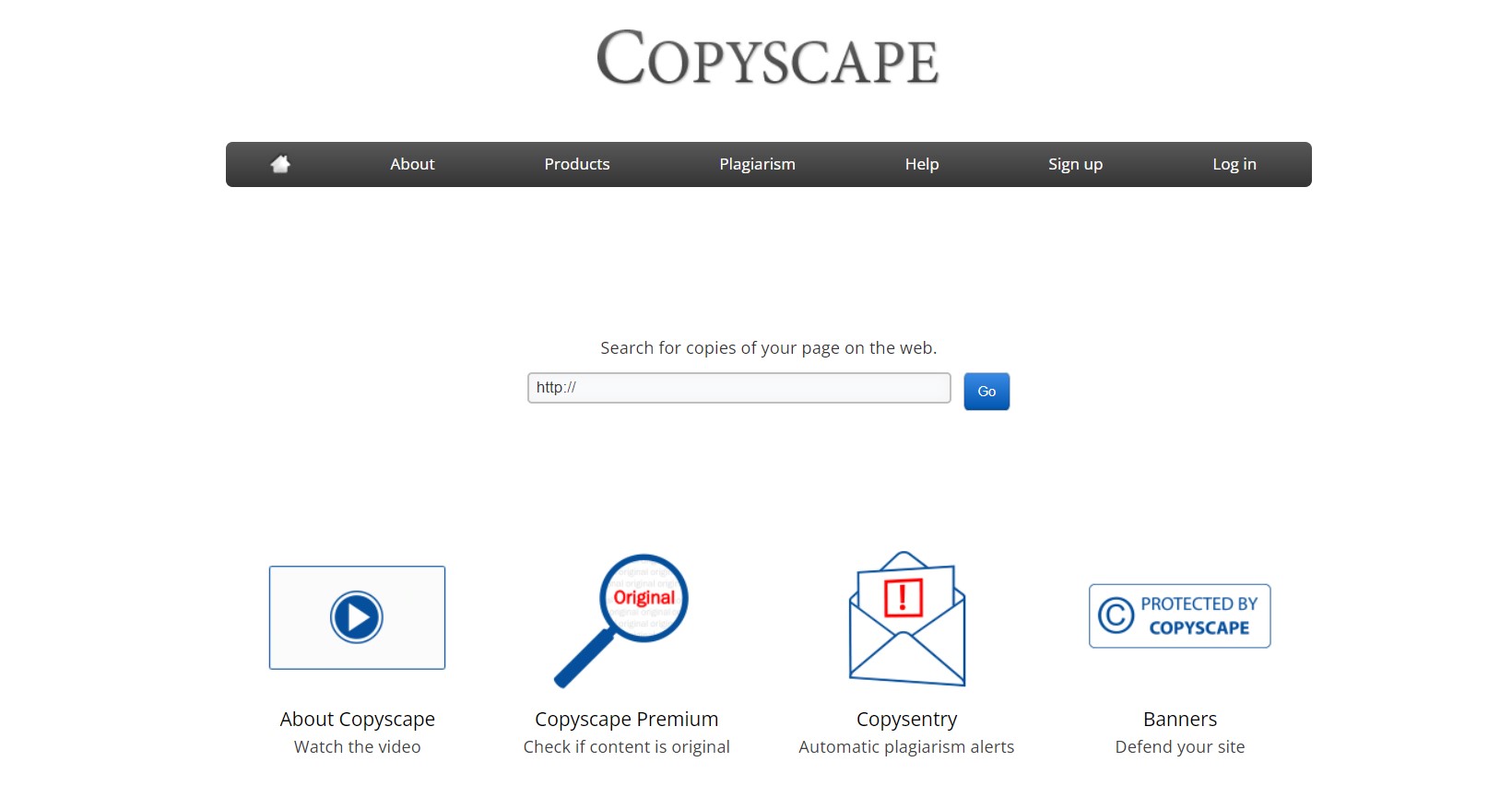
Specializes in detecting online content duplication, popular among website owners and content creators.
Expertise: Specialized in detecting online content duplication.
Key Features:
– Website content checking
– Batch search capabilities
– API for integration with content management systems
Use Case: Particularly useful for website owners and content creators who need to ensure their online content remains unique.
PlagScan

Offers both online and offline checking, used by educational institutions and businesses.
Expertise: Offers versatile plagiarism checking for both online and offline content.
Key Features:
– Online and offline checking capabilities
– Integration with various platforms
– Customizable sensitivity settings
Use Case: Suitable for educational institutions and businesses that require flexible plagiarism detection solutions.
Quetext
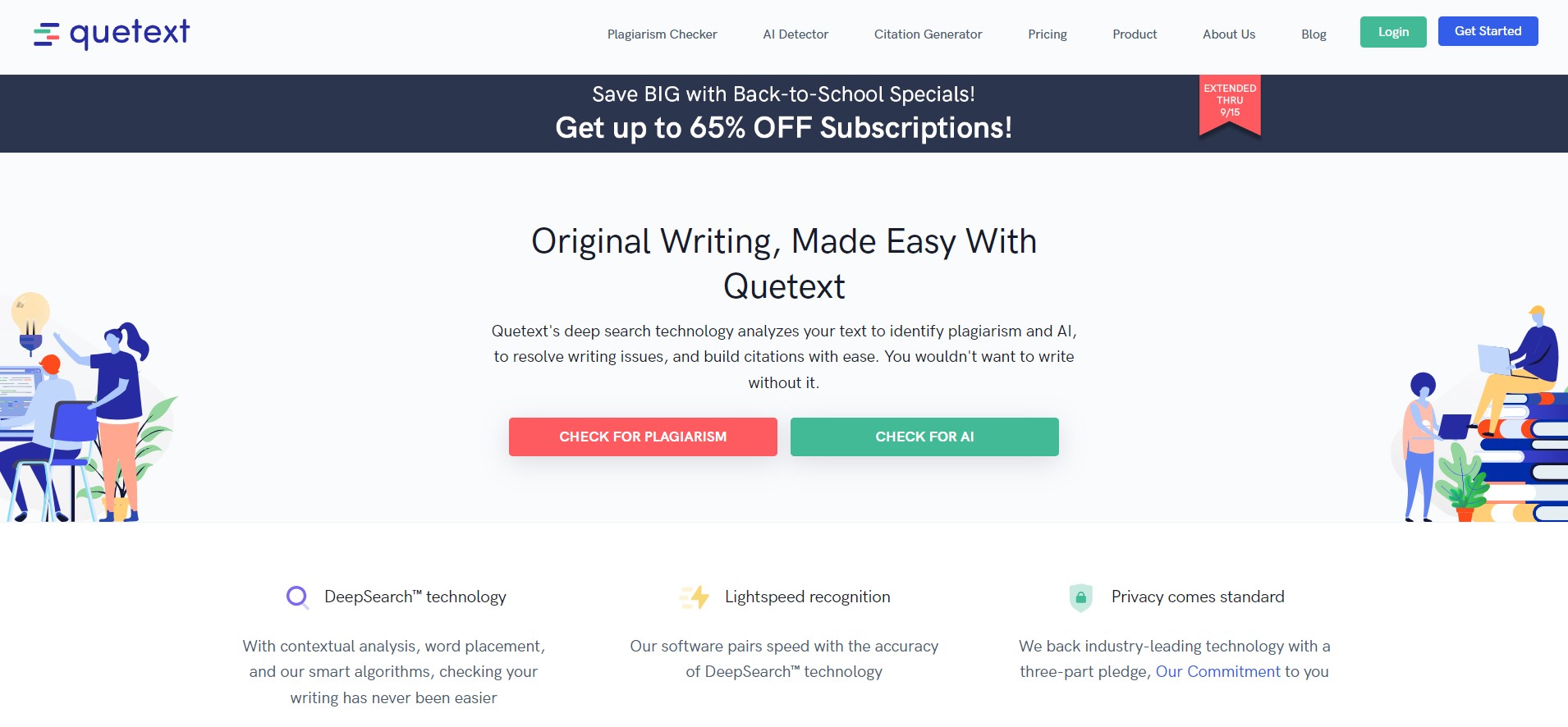
User-friendly tool with citation assistance, suitable for students and professionals.
Expertise: User-friendly tool with a focus on citation assistance.
Key Features:
– DeepSearch™ technology for accurate plagiarism detection
– Citation generator
– User-friendly interface
Use Case: Particularly helpful for students and professionals who need assistance with proper citation alongside plagiarism checking.
Also Read: Gpt66x: Revolutionizing Natural Language Processing
DupliChecker
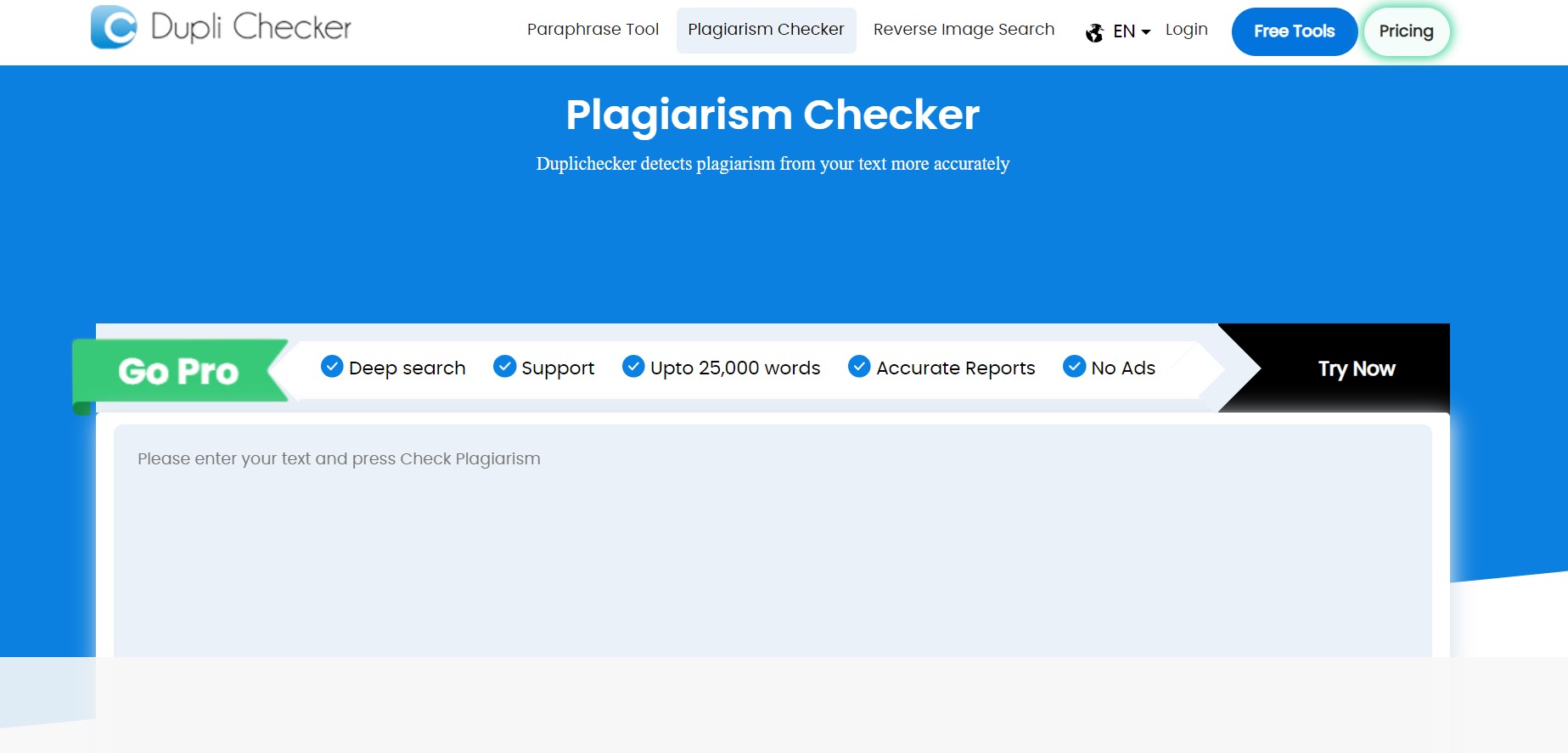
Expertise: Provides both free and paid options for plagiarism detection.
Key Features:
– Free basic checks
– More comprehensive paid version
– Simple, user-friendly interface
Use Case: Suitable for individual users or small organizations looking for cost-effective plagiarism checking solutions.
Scribbr
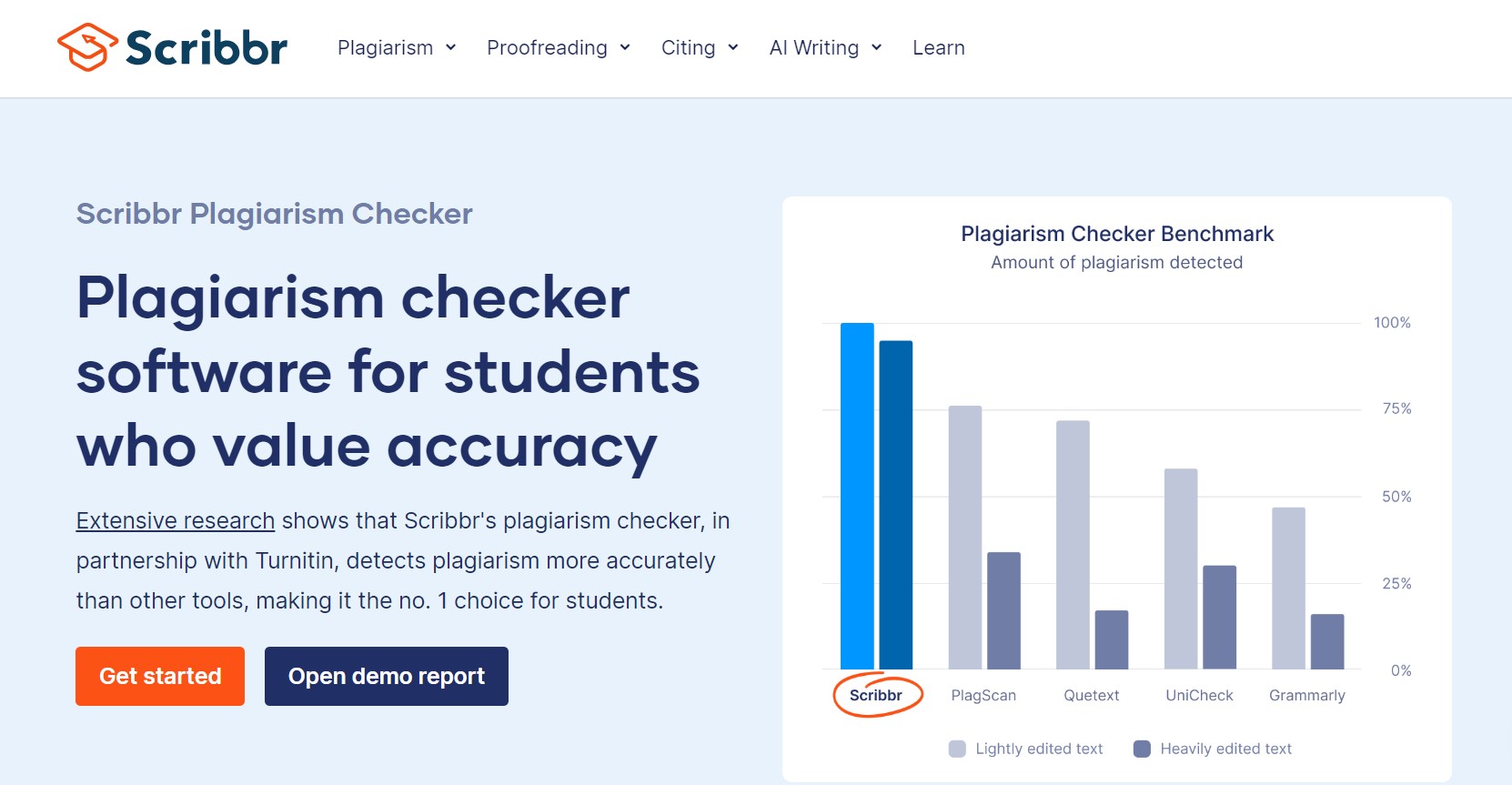
Expertise: Combines plagiarism checking with robust citation tools.
Key Features:
– Tailored for academic writing
– Citation generator and checker
– Detailed plagiarism reports
Use Case: Particularly valuable for students and researchers who need comprehensive support for academic writing and citation.
Copyleaks
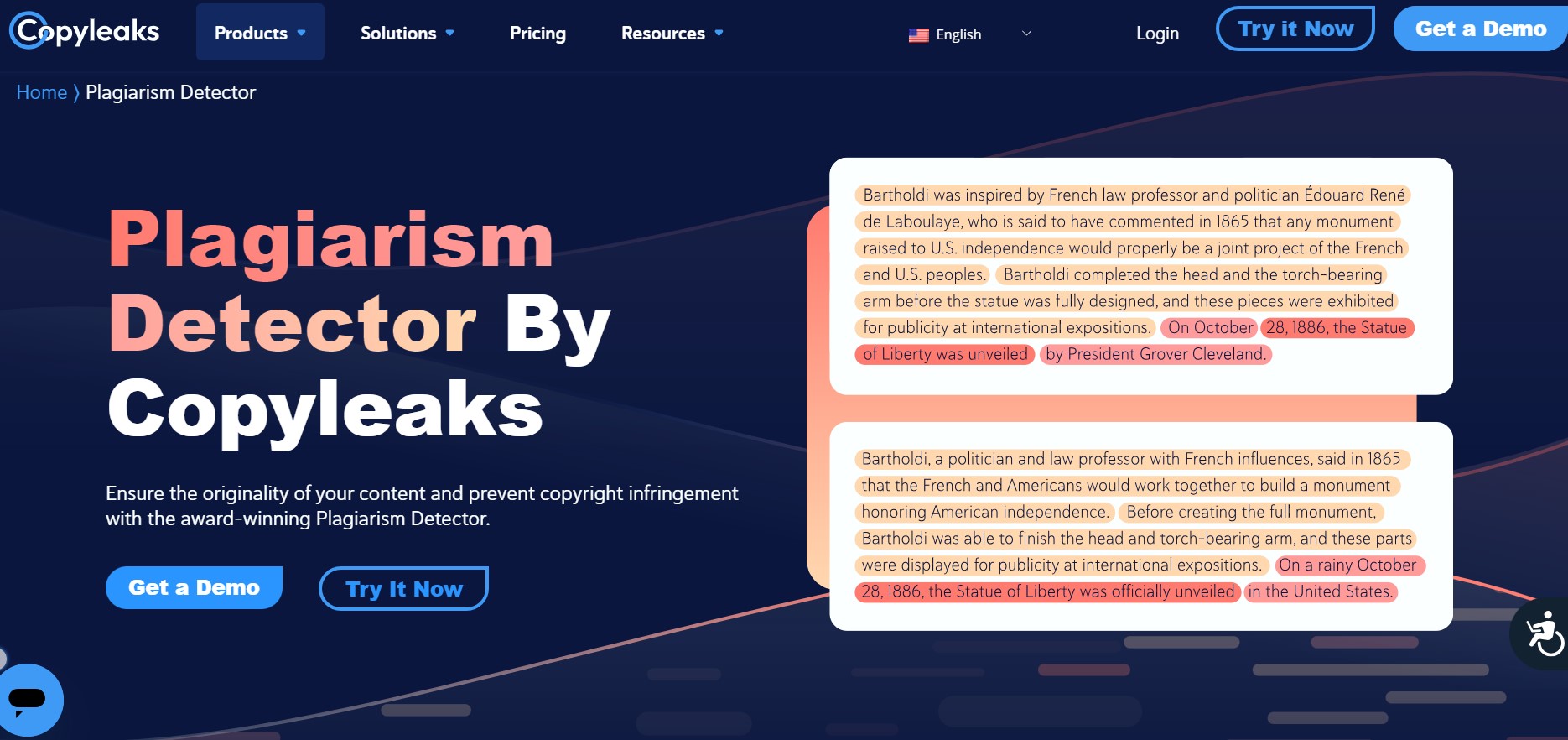
Expertise: Utilizes advanced AI for paraphrasing detection and offers blockchain verification.
Key Features:
– AI-powered paraphrasing detection
– Blockchain verification for originality reports
– Multi-language support
Use Case: Ideal for organizations requiring cutting-edge plagiarism detection technology and verifiable originality reports.
Choosing the Right Tool
When selecting a plagiarism checker AI tool, consider the following factors:
Purpose: Are you an educator, student, content creator, or business professional?
Integration: Does the tool need to work with specific learning management systems or content platforms?
Database size: Consider the breadth and depth of the tool’s comparison database.
Additional features: Some tools offer grammar checking, citation assistance, or other writing support.
Cost: Consider your budget and whether free options meet your needs.
Each of these plagiarism checkers offers distinct features and benefits, catering to different preferences and requirements. While some come with a price tag, others provide free or partially functional versions for students. Choosing the right one depends on individual needs, budget constraints, and the specific context in which the tool will be used.
Also Read: The Emergence of AI Writing Tools: Revolutionizing Content Creation
Conclusion
In today’s academic and professional landscapes, AI-powered plagiarism detection tools have become essential guardians of intellectual honesty and creative authenticity. These sophisticated systems, built on the foundations of artificial intelligence and machine learning, offer a robust defense against unintentional copying and deliberate content theft. Their efficiency and precision in identifying potential plagiarism make them invaluable assets for educators, students, and content creators alike, with diverse options available to suit various needs and contexts.
The future of plagiarism detection looks promising as AI technology continues to advance. We can anticipate these tools evolving to new heights of sophistication, enhancing their accuracy and expanding their feature sets to provide even more comprehensive support for original content creation.
However, it’s crucial to remember that while these AI tools are powerful allies in the fight against plagiarism, they should not be viewed as a complete solution. Rather, they should be integrated into a holistic approach to academic integrity and ethical content creation.
The cornerstone of producing high-quality, original work remains rooted in fundamental skills and practices. Mastering proper citation techniques, honing critical thinking abilities, and cultivating strong writing skills are irreplaceable elements in the pursuit of authentic and valuable content creation.
In essence, AI plagiarism checkers are not just detectors, but educators prompting us to reflect on our work, improve our writing, and uphold the highest standards of academic and professional integrity.

Leave a Reply